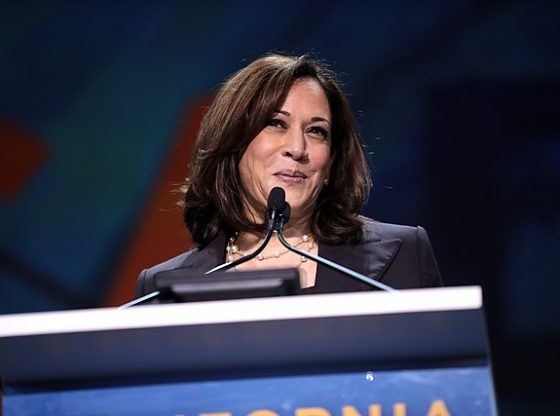With the presidential race winding down to its final weeks, voters still have no real way of knowing how a Kamala Harris presidency would impact their wallets, and more specifically, their energy bills — which have risen dramatically under the Biden-Harris administration.
While Vice President Harris has taken to saying in recent weeks that “My presidency will not be a continuation of Joe Biden’s presidency,” she offers little in the way of specifics showing how it might differ. In fact, when given the chance in not one but two powder-puff interviews with the hosts of “The View” and the ever-so-friendly Stephen Colbert, Harris could not point to a single thing she would do differently.
In an interview with Politico this week, Harris’s new point person for energy and climate engagement, Camila Thorndike, said: “Just to be clear, Vice President Harris hasn’t said anything that the administration hasn’t already said” where energy issues are concerned. But when given a chance to expand on that, Thorndike simply advised folks to look at Harris’s record, which she and Harris both like to say is clear.
The trouble here is that the Harris record is clear, but it conflicts with her campaign rhetoric where topics like a fracking ban or leasing federal lands for drilling are concerned. These are conflicts so stark and numerous that more in the media are taking notice.
In a piece last week commenting on her energy rhetoric vs. record, a New York Post writer said that Kamala Harris’s “flip-flops are like oil and water.” Noting Harris’s new tactic of boasting about record levels of oil and gas production created by the U.S. industry in the last two years, the Post pointed out that she sang a decidedly different tune during a CNN-hosted town hall in her aborted presidential run in 2019.
Then, Harris said she would attack oil companies and their executives as if they were the Big Tobacco companies of the 1990s, saying they “should be really prepared to look at a serious fine or be charged with a crime.” But now, instead of promising to prosecute oil producers, she has taken to praising them with boasts like: “We have had the largest increase in domestic oil production in history because of an approach that recognizes that we cannot over rely on foreign oil.”
For voters, the question becomes: Are the oil companies criminals to be prosecuted, or assets to the country who should be praised? The contrast is breathtaking.
So, when Thorndike says voters should look at Harris’s “clear” record, which record is she referring to? Is it the record from her days in the Senate, when she endorsed destroying the filibuster rule to pass the Green New Deal, of which she was a sponsor? That clear record says Harris is willing to take a radical step that West Virginia Sen. Joe Manchin recently said would “destroy” any sense of bipartisanship to pass legislation that would ban fracking and end leasing on federal lands.
Or is Thorndike referring to Harris’s clear record in her 2019 presidential run in which she told the audience in that same CNN town hall “there is no question I am in favor of banning fracking?” Or is she talking about Harris’s clear record dating to when, as California attorney general, she sued the Obama administration to ban fracking activities off the state’s Pacific Coast?
The Harris of today promises she won’t ban fracking if she’s elected president, a promise many believe she is only making in a desperation bid to win the key state of Pennsylvania. The thousands of voters in that state whose livelihoods depend on the continued ability to drill and frack Marcellus Shale gas wells are rightly concerned that a person whose record really is very clear about wanting to ban the financial support for their way of life might break that promise once installed into the White House.
_Campaign promises are made to be broken, and very often are. But Kamala Harris’s record where fracking and other oil and gas issues are concerned is what it is. For those to whom it is a make or break situation, the decision on Nov. 5 really isn’t hard.
Featured Image Credit: Gage Skidmore from Peoria, AZ, United States of America












